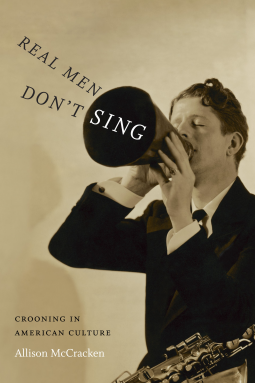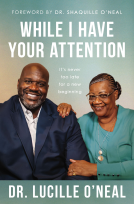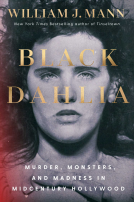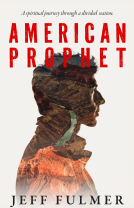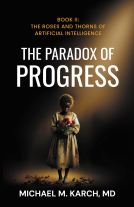Please wait... This may take a moment.
Real Men Don't Sing
Crooning in American Culture
This title was previously available on NetGalley and is now archived.
Pub Date
Sep 25 2015
| Archive Date
Sep 18 2015
Description
Crooner Rudy Vallée's soft, intimate, and sensual vocal delivery simultaneously captivated millions of adoring fans and drew harsh criticism from those threatened by his sensitive masculinity. Although Vallée and other crooners reflected the gender-fluidity of late 1920s popular culture, their challenge to the Depression-era's more conservative masculine norms led cultural authorities to stigmatize them as gender and sexual deviants. In Real Men Don't Sing Allison McCracken outlines crooning's history from its origins in minstrelsy through its development as the microphone sound most associated with white recording artists, band singers, and radio stars. She charts early crooners' rise and fall between 1925 and 1934, contrasting Rudy Vallée with Bing Crosby to demonstrate how attempts to contain crooners created and dictated standards of white masculinity for male singers. Unlike Vallée, Crosby survived the crooner backlash by adapting his voice and persona to adhere to white middle-class masculine norms. The effects of these norms are felt to this day, as critics continue to question the masculinity of youthful, romantic white male singers. Crooners, McCracken shows, were not only the first pop stars, but their short lived, yet massive popularity fundamentally changed American culture.
Crooner Rudy Vallée's soft, intimate, and sensual vocal delivery simultaneously captivated millions of adoring fans and drew harsh criticism from those threatened by his sensitive masculinity...
Description
Crooner Rudy Vallée's soft, intimate, and sensual vocal delivery simultaneously captivated millions of adoring fans and drew harsh criticism from those threatened by his sensitive masculinity. Although Vallée and other crooners reflected the gender-fluidity of late 1920s popular culture, their challenge to the Depression-era's more conservative masculine norms led cultural authorities to stigmatize them as gender and sexual deviants. In Real Men Don't Sing Allison McCracken outlines crooning's history from its origins in minstrelsy through its development as the microphone sound most associated with white recording artists, band singers, and radio stars. She charts early crooners' rise and fall between 1925 and 1934, contrasting Rudy Vallée with Bing Crosby to demonstrate how attempts to contain crooners created and dictated standards of white masculinity for male singers. Unlike Vallée, Crosby survived the crooner backlash by adapting his voice and persona to adhere to white middle-class masculine norms. The effects of these norms are felt to this day, as critics continue to question the masculinity of youthful, romantic white male singers. Crooners, McCracken shows, were not only the first pop stars, but their short lived, yet massive popularity fundamentally changed American culture.
Advance Praise
"Allison McCracken explores the blurred genders of the croon through intimate historical detail, impeccable research, and a sense of the ever-shifting mores of sexual identity. She understands how technology influences artistry; and how the core of musical seduction remains constant, a voice whispering in the ear, a man singing to a woman in her own lingual." — Lenny Kaye, author of You Call It Madness: The Sensuous Song of the Croon
"Allison McCracken's subject in this animated and incisive study is less than ten years of swooning Prohibition-era American pop but she'll make you a quick believer that it forever changed what it means to listen to 'men' and 'women' singing. Cue up some Rudy Vallee and be prepared to never hear the recorded male singing voice the same way again."— Josh Kun, University of Southern California
"Allison McCracken explores the blurred genders of the croon through intimate historical detail, impeccable research, and a sense of the ever-shifting mores of sexual identity. She understands how...
Advance Praise
"Allison McCracken explores the blurred genders of the croon through intimate historical detail, impeccable research, and a sense of the ever-shifting mores of sexual identity. She understands how technology influences artistry; and how the core of musical seduction remains constant, a voice whispering in the ear, a man singing to a woman in her own lingual." — Lenny Kaye, author of You Call It Madness: The Sensuous Song of the Croon
"Allison McCracken's subject in this animated and incisive study is less than ten years of swooning Prohibition-era American pop but she'll make you a quick believer that it forever changed what it means to listen to 'men' and 'women' singing. Cue up some Rudy Vallee and be prepared to never hear the recorded male singing voice the same way again."— Josh Kun, University of Southern California
Available Editions
| EDITION |
Paperback |
| ISBN |
9780822359364 |
| PRICE |
$28.95 (USD)
|
Additional Information
Available Editions
| EDITION |
Paperback |
| ISBN |
9780822359364 |
| PRICE |
$28.95 (USD)
|
Average rating from 7 members
Readers who liked this book also liked:
Finding Focus
Zelana Montminy
Business, Leadership, Finance, Self-Help
The Unbreakable Boy
Scott Michael LeRette
Biographies & Memoirs, Christian, Parenting, Families, Relationships
Karen
Kelsey Grammer
Biographies & Memoirs, Parenting, Families, Relationships, True Crime
Black Dahlia
William J Mann
Biographies & Memoirs, True Crime
Consider the Birds
Callie Smith Grant
Home & Garden, Outdoors & Nature, Religion & Spirituality
American Prophet
Jeff Fulmer
General Fiction (Adult), Politics & Current Affairs, Religion & Spirituality
Googoosh
Googoosh
Biographies & Memoirs, History
Five Bullets
Elliot Williams
History, Professional & Technical
